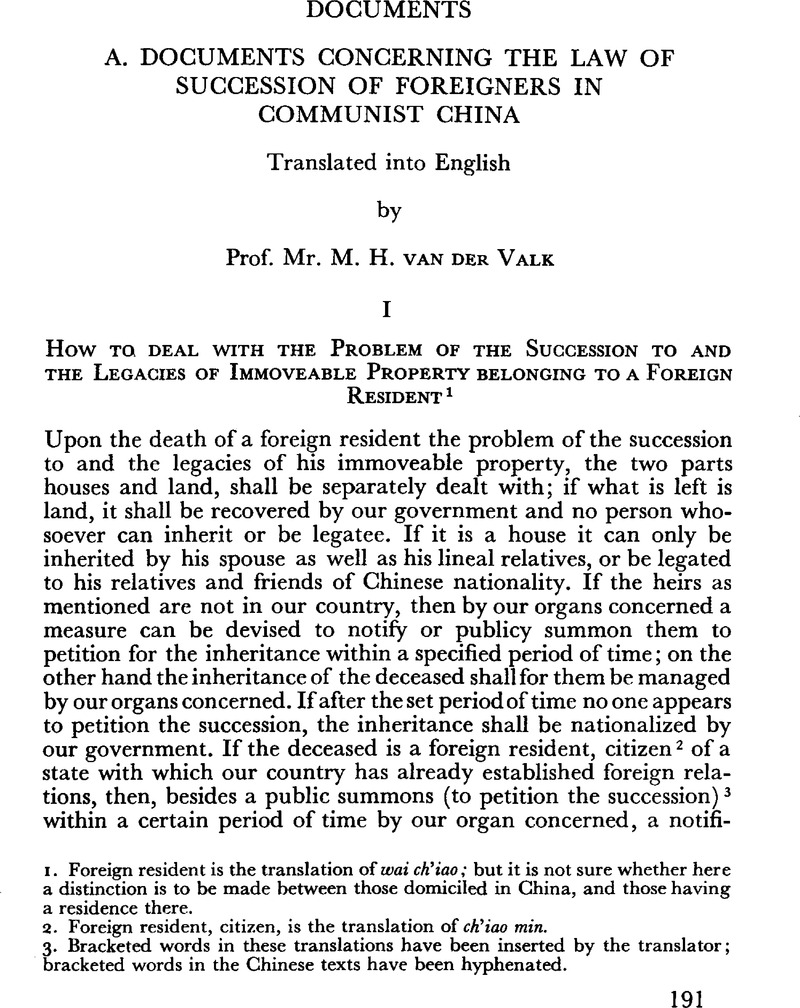No CrossRef data available.
Published online by Cambridge University Press: 21 May 2009

1. Foreign resident is the translation of wai ch'iao; but it is not sure whether here a distinction is to be made between those domiciled in China, and those having a residence there.
2. Foreign resident, citizen, is the translation of ch'iao min.
3. Bracketed words in these translations have been inserted by the translator; bracketed words in the Chinese texts have been hyphenated.
4. Offices of Foreign Affairs, wai shih ch'uGoogle Scholar, are often mentioned in these documents. They have probably been set up in virtue of art. 6 of the General rules for the organization of the municipal people's government, shih jen min cheng fu tsu chih t'ung tse, passed by the Government Administration Council on 1st June 1950, allowing the municipal people's government committee to set up a special organ where needed. Text of these regulations in Jen min min chu cheng ch'üan chien she kung tso, Peking 1953, pp. 129–133.Google Scholar
5. Unknown.
6. Fang-ch'an—this word is sometimes used in the sence of immoveables in general, cf p. 196, 197; cf however document III.
7. Unknown.
8. Unknown.
9. Unknown.
10. This paragraph recalls art. 1177, 1178, 1185 of the Chinese civil code of 1931.
11. This seems to be a fairly incorrect extract of the definition contained in document III. House property fang ch'an, is here equalized with immoveable property. Cf also p. 192.
12. Cf document III and below p. 200.
13. Cf note 12 p. 197.
14. This I take to be the meaning of Lü-ta, for Lü-shun Ta-lien.
15. I supply this word which evidently has fallen out.